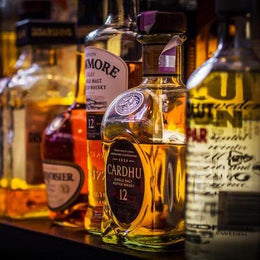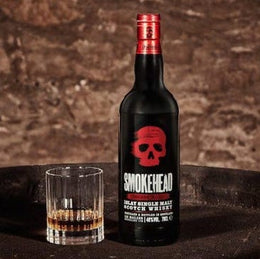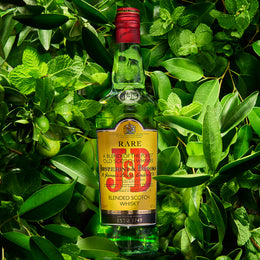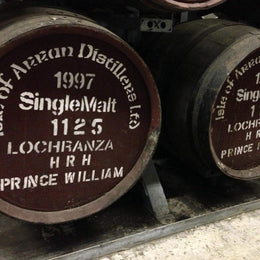
|
Felipe is an award-winning London-based whisky writer, tastings host, drinks competitions judge, and author. He is also a musician and co-founder of The Rhythm and Booze Project, a duo that fuses live music and whisky through gigs, tasting events and multimedia. |
To celebrate International Women’s Day, it’s appropriate to raise a healthy dram to the women that have made the industry what it is today. Women have always been instrumental to the development of alcohol, whether pioneering brewing for the first time in history in Mesopotamia or setting up some of the greatest whisky distilleries.


The influence and legacy of women who managed to succeed in what has traditionally been a man’s world has left a lasting impression in the whisky we get to drink. So here are some of their stories, showing why their legacy is so significant.
1. Bessie Williamson – Owner of Laphroaig
The only woman in history to own and manage a distillery in the 20th century, there was no indication that Bessie Williamson would become such an important whisky figure. The daughter of a clerk who was killed fighting in World War 1, she was on holiday for the summer on Islay in 1934 with a friend and applied for a summer job working as a shorthand typist at the Laphroaig whisky distillery. She stuck around for a while.
She rapidly rose through the ranks, first by managing the office at Laphroaig, then taking on additional management responsibilities when owner Ian Hunter suffered a stroke in 1938. When he died in 1954, he left her £5,000, ownership of the distillery business, and the tiny islet of Texa to her.
Under her watch, she increased production, and eventually sold the distillery to American company Long John Distillers in order to receive funding to modernise the facilities. Beloved on the island, she provided plenty of work for the local men, kept Laphroaig’s high reputation intact, and successfully guided the distillery through tricky economic periods.
2. Jessie Roberta Cowan (Rita Taketsuru) – The Mother of Japanese Whisky
A young Japanese man, Masatake Taketsuru, came to Scotland to learn how to make whisky. He ended up falling in love and marrying the daughter of his landlords, Jessie ‘Rita’ Roberta Cowan, in 1920 (to the displeasure of both families). Taking her back to Japan, he began to work on his dream of building a whisky distillery.
Masatake would go on to build Kotobukiya’s (later to become Suntory) first whisky plant (he eventually left the company, disgusted that they were not planning on producing ‘real’ whisky), and established his own distillery in the Japanese ‘highlands’ of Yoichi, setting up the Nikka distilling company. During this time, Rita provided both moral and financial support, as she gave English classes to both children and housewives while learning Japanese herself. Eventually, the business began to find success during World War II as Japanese navy began drinking the whisky (though Rita was ostracized as a ‘spy’ by the local community), and it continued to prosper afterwards. She became known as 'The Mother of Japanese Whisky'.
Rita and Masatake eventually adopted their nephew Takeshi (after his father died in WWII), who went on to take over the company and rapidly expanded its operations around the world.
Nowadays, she is celebrated figure in Japan, and a recent TV series based on her life and relationship with Masatake was an enormous success. There's also been a Manga comic drawn about her too.
3. Helen Cumming – Founder and Owner of Cardhu
Until recently, Helen Cumming was the only woman to ever be a founder of a Scotch whisky distillery. Though John Cumming, her husband, was the official founder, it’s recognized now it was Helen’s business acumen and creative ways of avoiding alcohol taxes that kept the distillery going.
There’s a story that says that she once managed to disguise the distillery as a bakery while serving tea to the auditors (while signalling other distilleries with a red flag that they were in town). Another recounts a time when she walked 20 miles loaded with bladders of whisky in her skirts, knowing that authorities wouldn’t be so undignified as to search her.
Though she passed Cardhu on to her son Lewis (and stayed involved in running the distillery into her mid-90s), it was his wife Elizabeth that took over after Lewis died unexpectedly. Under her watch, Cardhu greatly expanded production, and then she made a lot of money for the family by selling the distillery off to Johnnie Walker.
4. Ethel Greig ‘Miss Babs’ Robertson – Founder of Edrington
Ethel Greig Robertson’s grandfather, William Alexander Robertson, had founded the Robertson and Baxter firm of brokers and blenders, the Clyde Bonding Company, and Highland Distillers over the course of his career. Many hugely influential whisky figures, such as Sir Alexander Walker, and John Dewar Jr., were apprentices under him.
Her father James inherited the family business, which in turn was passed down to her and her sisters (who deputed Ethel to represent them in all whisky business matters) on his death in 1944.
An avid stag hunter and race car driver, she promptly managed not only to soundly steer the company, but to also ward off continuous aggressive takeover attempts by the enormous American firm Seagram. In order to protect their business interests, and to avoid the impact of extremely high inheritance taxes, she created a holding company and charitable trust.
The holding company was named after one of the Robertson family farms, Edrington, and the company shares were passed on to the Robertson Trust. Today, Edrington owns the Highland Park and Macallan distilleries (amongst others), as well as the Famous Grouse blended whisky. The Robertson Trust is now the largest charitable trust in Scotland, distributing £20m to over 500 causes a year.
By Felipe Schrieberg
Felipe is a London-based whisky writer, musician, tastings host, drinks competitions judge, and author. He writes for internationally renowned publications such as Forbes, Whisky Magazine and The Whiskey Wash. He has been awarded the Icons of Whisky Communicator of the Year award at Whisky Magazine's 2022 World Whiskies Awards.
He is the co-founder of The Rhythm and Booze Project, a duo fusing live music and whisky through gigs, tasting events, and multimedia. His past projects encompass performances at the Edinburgh Fringe of the band's own show Two Guys, Three Drams which combined live blues with whisky tasting, and building the world's first bass drum made from an entire Scotch whisky cask with a barrel of Lagavulin.
He is also a judge for the World Whiskies Awards and The Independent Bottlers Challenge. Through his online tastings hosted at The Virtual Whisky Masterclass, he has welcomed over 3,000 guests across 250+ tasting events.
His first book, London Cocktails, is now available worldwide. Follow him on Twitter/Instagram @schriebergfr, or at www.felipeschrieberg.com







